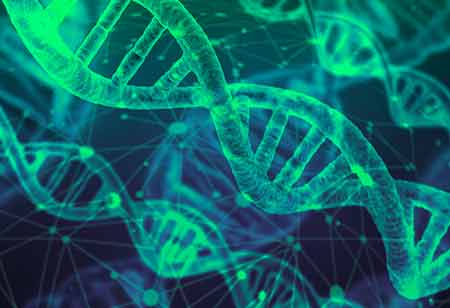The chemical manufacturing industry has a novel tool that could reduce its environmental footprint: Artificial intelligence.
FREMONT, CA: Chemicals are a significant participant in our society. From automobiles and medicines to toys and clothes, they can be inducted into multiple diversifications of dairy products. But the manufacturing of these imports can negatively impact the environment and discharge greenhouse gases into the atmosphere.
Luckily, the chemical manufacturing industry still has a novel tool that could aid in lessening its environmental footprint: Artificial intelligence.
Similar to other technologies, AI (Artificial Intelligence) comes with disputes, like accountability, security, technological distrust, and the movement of human workers. These few challenges must be discussed to support AI technology’s future. The collaborators must ensure that AI’s influence is positive by motivationally addressing the disputes while confirming the vacant opportunities.
Chemistry is a productive ground for using and evolving AI technology. Application areas of AI and good systems are organized below.
-
Process control: several industries
-
Chemical synthesis and analysis
-
Manufacturing: planning and configuration
-
Waste minimization
-
Signal processing: several industries
-
Mineral exploration
-
Intelligent CAD
-
Instrumentation: monitoring and data analysis
-
Medical diagnosis and treatment
-
Chemo metrics
In the Chemical industry, a huge amount of Artificial Intelligence (AI) is employed in the Pharmaceutical industry. In the pharmaceutical industry, AI is employed in multiple tasks like Drug Discovery. Drug discovery often takes an eternity to study compounds against samples of diseased cells. Finding biologically active compounds is worth exploring and requires even more progressive analysis as computers are quicker and more precise than conventional human examination and laboratory investigations in divulging new data sets. New and effective drugs can be made open sooner while reducing the operational expenses integrated with the manual investigation of every compound.
Apart from drug discovery, Automated control process systems [ACPS] are organized below.
-
Sensing process variables‟ value.
-
Transmission of signal to measuring element.
-
Measure process variable.
-
Presenting the value of the measured variable.
-
Set the value of the desired variable.
-
Comparison of desired and measured values.
-
Control signal transmission to a final control element. and
-
Control of manipulated value.
Two applications of AI in the Pharmaceutical Industry are.
Thus, Pharmaceutical Industry can provoke innovation by utilizing technological progress. The recent technological progress that springs to mind would be artificial intelligence, the advancement of computer systems able to execute tasks generally requiring human intelligence, like visual perception, decision-making, speech recognition, and translation between languages. Artificial intelligence can be of real benefit in studying the data and offering results that would help in decision making, saving Human effort, time, and money and hence help save Lives.
The greater the healthcare sector gets more developed, the more technologically progressive infrastructure it will require. Artificial intelligence is the design and application of algorithms for the study of swotting and clarification of data.

